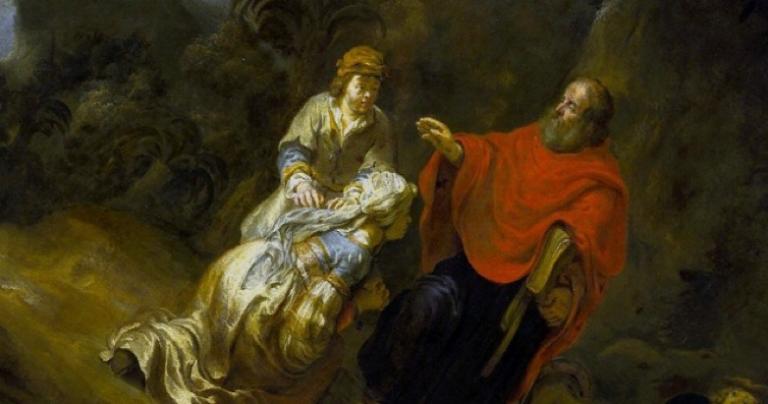 What is happening? What is God doing? We ask this question at times of great blessing and joy. What could we possibly have done to merit this? Most often, we do not count our blessings, but do count our pains. This is natural, but when we ask about either joy or pain, why doesn’t God always speak?
What is happening? What is God doing? We ask this question at times of great blessing and joy. What could we possibly have done to merit this? Most often, we do not count our blessings, but do count our pains. This is natural, but when we ask about either joy or pain, why doesn’t God always speak?
Often we ask and sometimes God tells us. Some people hear God speak and Christians call those people prophets. The job of a prophet is not (generally) “telling the future,” but knowing what God is doing in the world and speaking that truth to us. Our culture often kills our prophets, as many societies have done, but God does send people to speak the word. If this is true, then why don’t we get answers to all our questions? Why do His prophets not seem to know?
The Bible explains in a story, as the Bible often does, one reason this is so.* There was a woman given one son through a miraculous birth and then that son died. This was horrible yet she was not ready to give up. Sometimes death comes and we are sad, but also accepting, because death is a necessary end. To be born into eternity, we must die to time. This world is broken and so nobody would stay forever (how tedious!) even if they could.
We mourn as is fitting for a death that comes as a severe mercy.
At other times death comes and rends our souls. It does not seem right or the end of the story. We pray for resurrection and know that it will come. All who are dead will live again. This promise was underlined for all time when Jesus defeated death and returned to live forever. Death in the story is physical, but so many things end in so many ways in this broken world. Sometimes the ending is good, even if hard, and other times is inexplicable. Why?
We desire to understand, and nobody knows. Why?
The mourning mother wanted to know and so she asked God’s prophet.
When the man of God saw her coming, he said to Gehazi his servant, ‘Look, there is the Shunammite woman; 26 run at once to meet her, and say to her, Are you all right? Is your husband all right? Is the child all right?’ She answered, ‘It is all right.’ 27 When she came to the man of God at the mountain, she caught hold of his feet. Gehazi approached to push her away. But the man of God said, ‘Let her alone, for she is in bitter distress; the Lord has hidden it from me and has not told me.’
God sometimes hides deep truths even from His prophets. The pain is between God and us and God is not exposing our pain or our joy this side of the Final Judgment. When we care about other people, this is hard. We may want to know what is happening with our friend, but God’s not talking, not even to the prophet!
This very good news. God waits to speak to the prophet. The Shunammite woman shares and then the prophet is empowered by God to act. In this story, a miracle happens and the son is restored to the woman. This is not to set the precedent that God will always restore what is gone or that people must act as the Sunammite woman. That would be a misuse of the story, like generalizing the story of the Prodigal Son so that all fathers of prodigals should be told they must distribute their goods just as the Father did in the story. Instead, the general truth is (often) that we have not because we ask not and that God will wait to decide what we wish.
We can mourn or rejoice quietly in our hearts. That can be good. We can mourn or rejoice loudly. This also can be good. We can share our suffering or excitement with God’s prophet and that too can be good. God waits. He knows, but He does not rush around satisfying curiosity at the expense of privacy. There is a secret place in our hearts where God talks to us. Only God is there and God lets us decide what to share of the pains and joys there.
—————————————————-
*One reason is not every reason.











